In Science We Trust? Juror Views in the Wake of the Pandemic
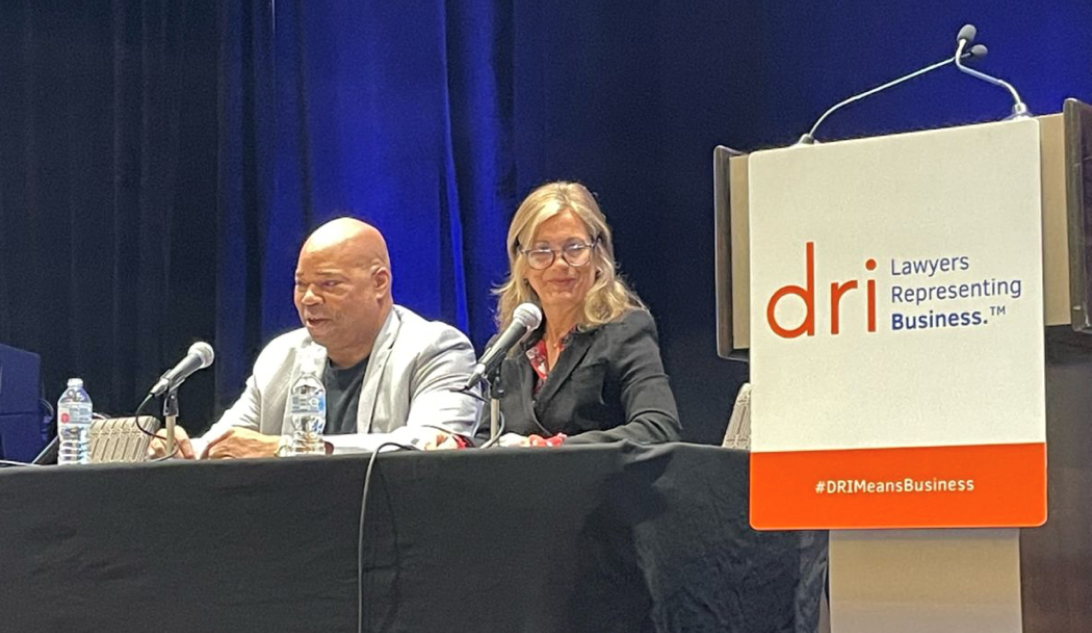
Susan G. Fillichio, Esq.1
Introduction
Since the onset of the pandemic in March 2020, Americans have been challenged to both co-exist with and understand the cause of COVID-19. While civil jury trials in most states were stopped for weeks or months, the civil justice system nationwide has now adapted. Jurors across the country are returning to courthouses, albeit in courtrooms that may not look the same as they did before. 2 In many jurisdictions, courts are giving trial scheduling priority to cases involving ill or injured plaintiffs, and jurors are often sitting in judgment of defendants accused of causing or contributing to that illness or injury. Of necessity, jurors are now back in court listening to causation evidence, typically consisting of the testimony of expert witnesses, often supported by scientific studies. Many in the defense bar consider science to be a key factor in their success of such cases, and the Fillichio & Hastings team generally concurs. However, like the altered courtrooms, jurors themselves are not quite the same as they were before the pandemic. To understand how juror views related to science may have been impacted by the pandemic, Fillichio & Hastings conducted a nationwide online survey of 1,018 adults ages 18 to 75 in late September 2021. 3 Below is a discussion of several of the most important findings of this extensive
survey on the topic of science, which can assist defense counsel in leveraging the strongest science case for trial. 4
Increased Interest, Knowledge and Concern
Since March 2020, Americans have been inundated with information about the genesis and transmission of COVID-19, more “science” than many of us have been exposed to in our lives. In the early weeks of the pandemic, our very existence and ability to survive seemed to hinge on our observation, acceptance, or rejection of what the government told us about the coronavirus, what scientists told us, what studies were showing, or what companies told us about the development and necessity of a possible vaccine.
All news sources carried stories about the science of the coronavirus and related topics, reaching a wide audience. Survey participants reported that they got most of their information about the pandemic from four primary sources: 31% Internet, 23% Local TV, 15% Cable TV, 11% Social Media and Podcasts 8%. 5 Given the explosion of scientific information coming at us from all sources, our hypothesis was that Americans might be paying more attention to and developing a greater interest in science related to their health as a result.
Where do you get most of your news about the pandemic?
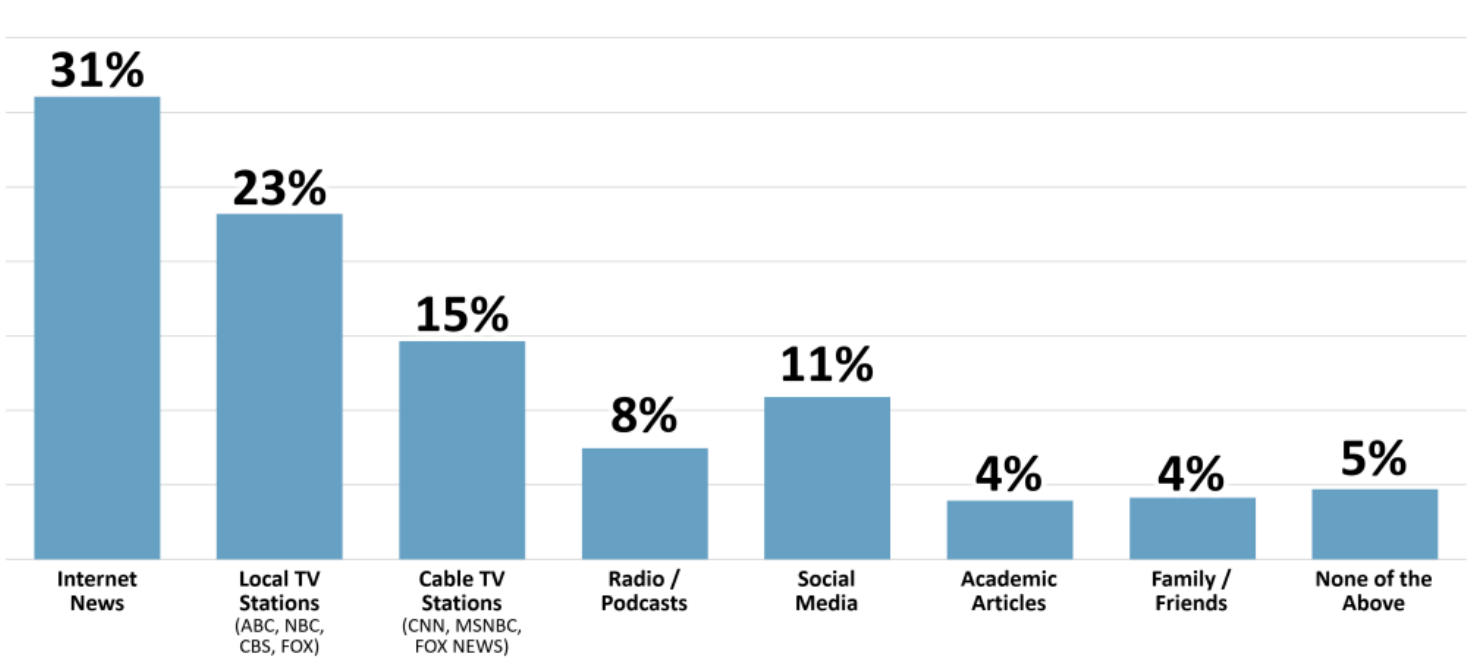
Fillichio & Hastings National Survey September 2021 - Total Respondents 1,018
Respondents overwhelmingly confirmed our hypothesis, with 83% of those in the survey telling us that they had become more knowledgeable about science related to their health because of the pandemic. We also analyzed the political affiliation of respondents. Of those who had increased knowledge, 78% were Democrats, 65% were Republican and 73% Independent. Certainly, those in the different parties may view the science differently but those across political affiliations viewed themselves as having been enriched. A robust percentage of all participants (72%) specifically reported that they were more interested in learning about the cause of disease and how it spreads because of the pandemic.
Since the beginning of the pandemic (March 2020), are you more interested in learning about the cause of disease and how it spreads?
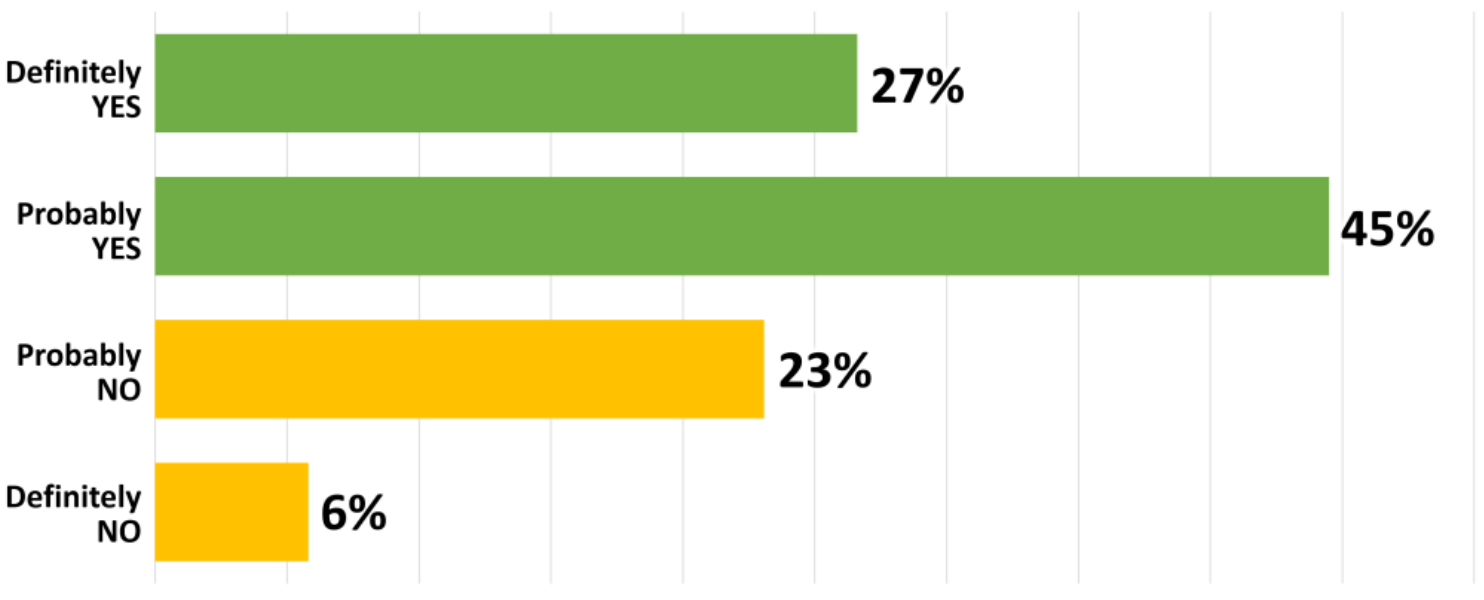
Fillichio & Hastings National Survey September 2021 - Total Respondents 1,018
Breathing Issues Are More Important Now
Not only has the pandemic focused America’s attention on our health, but it has raised levels of concern. Not surprisingly, 72% of respondents affirmed that they were more concerned about their health generally because of the pandemic. In particular, the pandemic increased respondents’ concerns about breathing issues and respiratory illness. At least 60% of respondents confirmed that they were more concerned about breathing issues/respiratory illness because of the pandemic.6 Significantly, 74% of Democrats were more concerned as compared to only 54% of Republicans and 59% of Independents.
By contrast, only 36% of respondents reported that they were more concerned about breathing in talcum powder specifically. By party affiliation, this breaks down as 41% Democrat, 31% Republican and 32% of Independents being more concerned about breathing in talc.
Since the beginning of the pandemic (March 2020), are you more concerned about breathing in talcum powder?
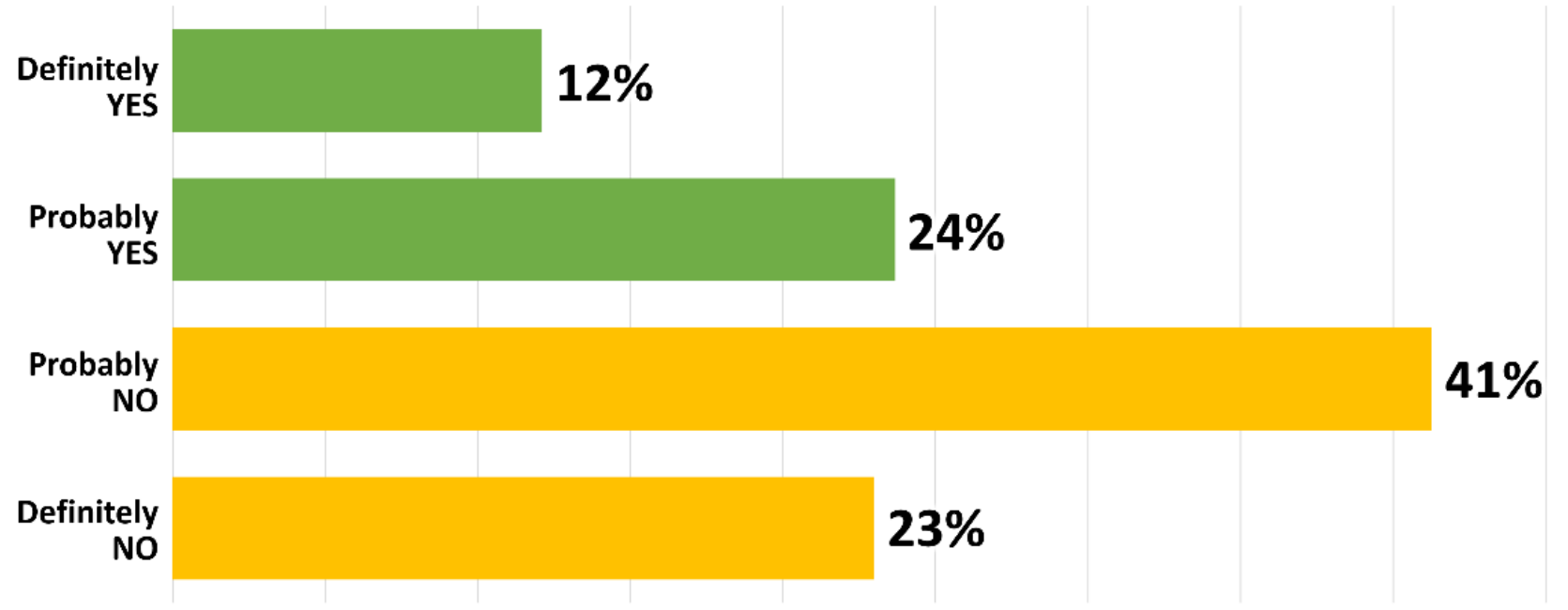
Fillichio & Hastings National Survey September 2021 - Total Respondents 1,018
A majority of the respondents in the survey did not view themselves as more vulnerable to cancer because of the pandemic. Only 36% of respondents believe that people are more susceptible to getting cancer since March 2020, the beginning of the pandemic.
Do you believe that people are more susceptible to getting cancer since the beginning of the pandemic (March 2020)?
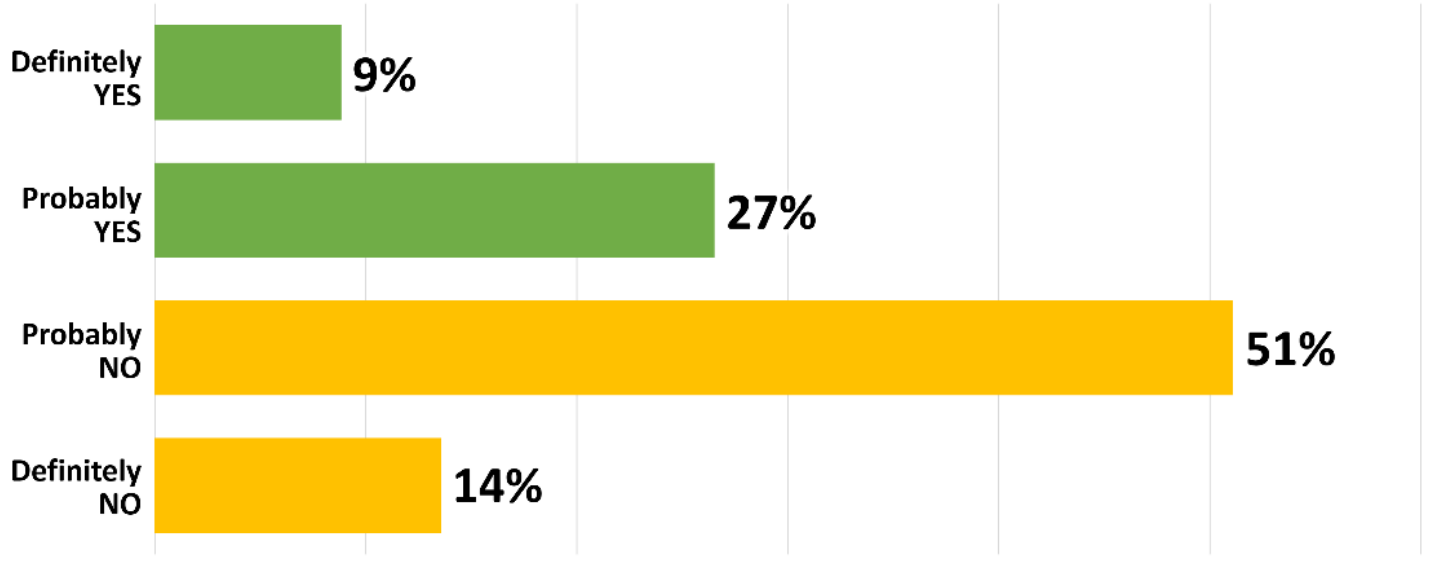
Fillichio & Hastings National Survey September 2021 - Total Respondents 1,018
On the cause of cancer, however, a majority of respondents chose exposure to harmful chemicals as the more likely cause of cancer as between a genetic predisposition or bad luck/chance.
If you had to choose one, which of the following is the more likely cause of cancer?
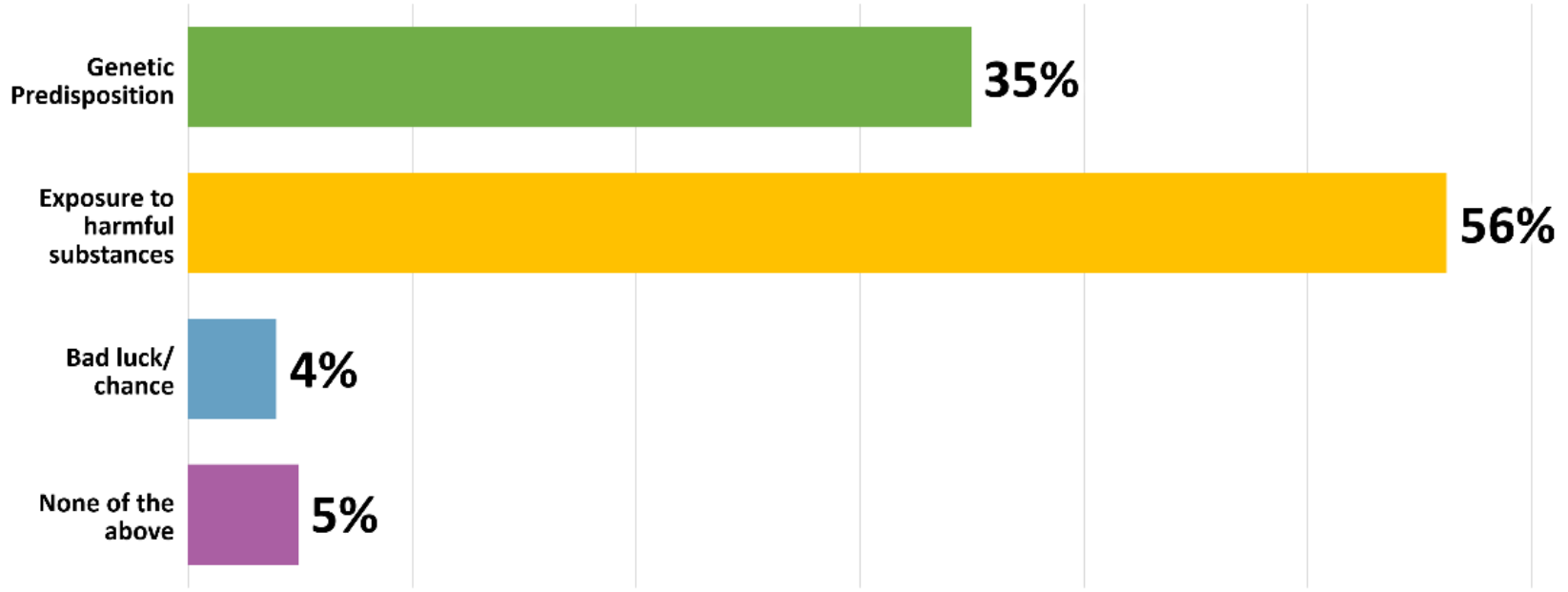
Fillichio & Hastings National Survey September 2021 - Total Respondents 1,018
Level of Education Alone Is Not Dispositive
The age-old debate amongst counsel on both sides of the courtroom is whether those with more education are more favorable to one side or the other. The Fillichio & Hastings team resists the urge to draw conclusions on this issue in a vacuum. Over the years, we have witnessed many jurors with very little education come out strong in favor of the defense, while conversely, those with advanced degrees have sometimes bitterly disappointed defense lawyers. While there is no magic formula, understanding the views of those with less than a college education on what causes illness and injury is critical, particularly given the demographic makeup of the venire in so many jurisdictions. Notably, those respondents in our survey who have not received their high school diploma or the equivalent were, on average, three times more likely to say, “Definitely No” to the question, “Have you become more concerned about breathing issues/respiratory illness because of the pandemic?”
Have you become more concerned about breathing issues/respiratory illness because of the pandemic?

Fillichio & Hastings National Survey September 2021 - Total Respondents 1,018
They were also three times more likely to say, “Definitely Yes” to, “Is it more likely that a genetic predisposition causes cancer rather than exposure to harmful substances?”
Is it more likely that a genetic predisposition causes cancer rather than exposure to harmful substances?

Fillichio & Hastings National Survey September 2021 - Total Respondents 1,018
Importantly, however, those respondents with less than high school education were nearly twice as likely to say "Yes" to a specific question about talc: "Since the beginning of the pandemic (March 2020), are you more concerned about breathing in talcum powder?"
Since the beginning of the pandemic (March 2020), are you more concerned about breathing in talcum powder?
Less than High School Graduate
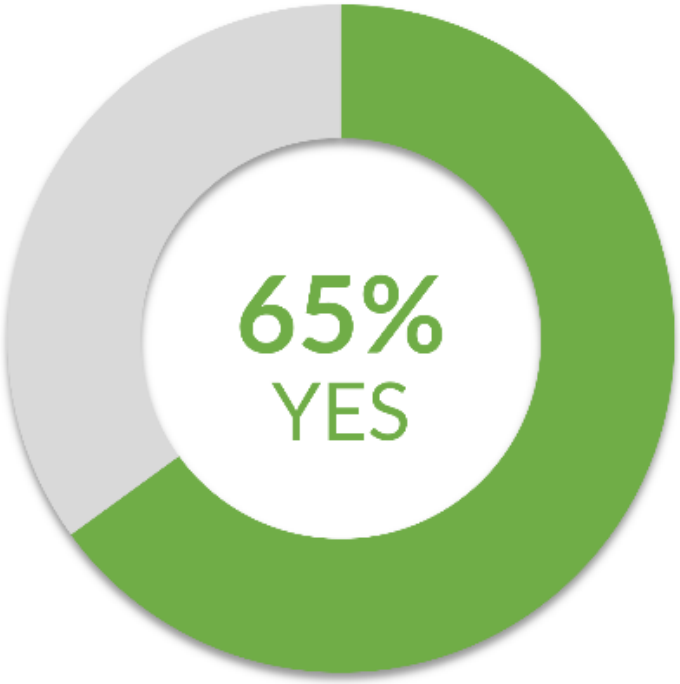
High School Graduate or More
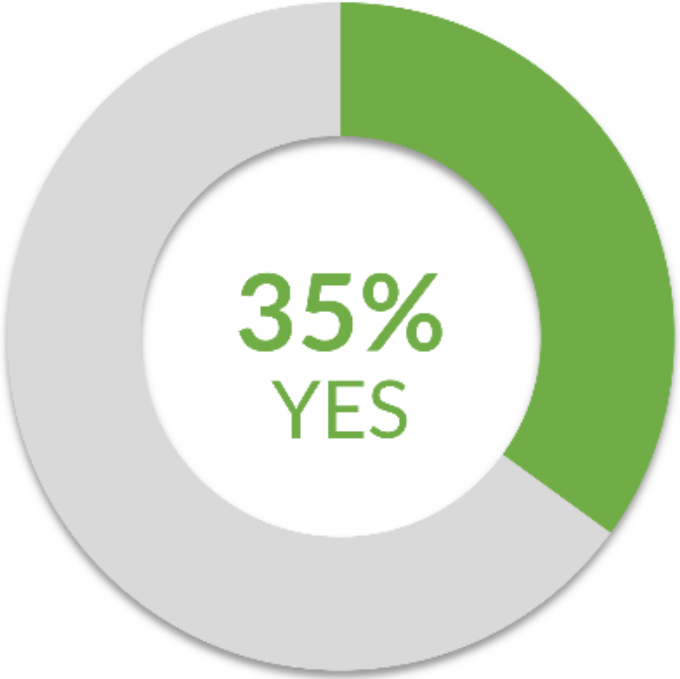
Fillichio & Hastings National Survey September 2021 - Total Respondents 1,018
Who Do Americans Trust?
Overall, the pandemic appears to have eroded confidence in government for a significant percentage of the respondents. For example, 68% of respondents reported that they were not more trusting of government agencies because of the pandemic.
Are you more trusting of government agencies because of the pandemic?
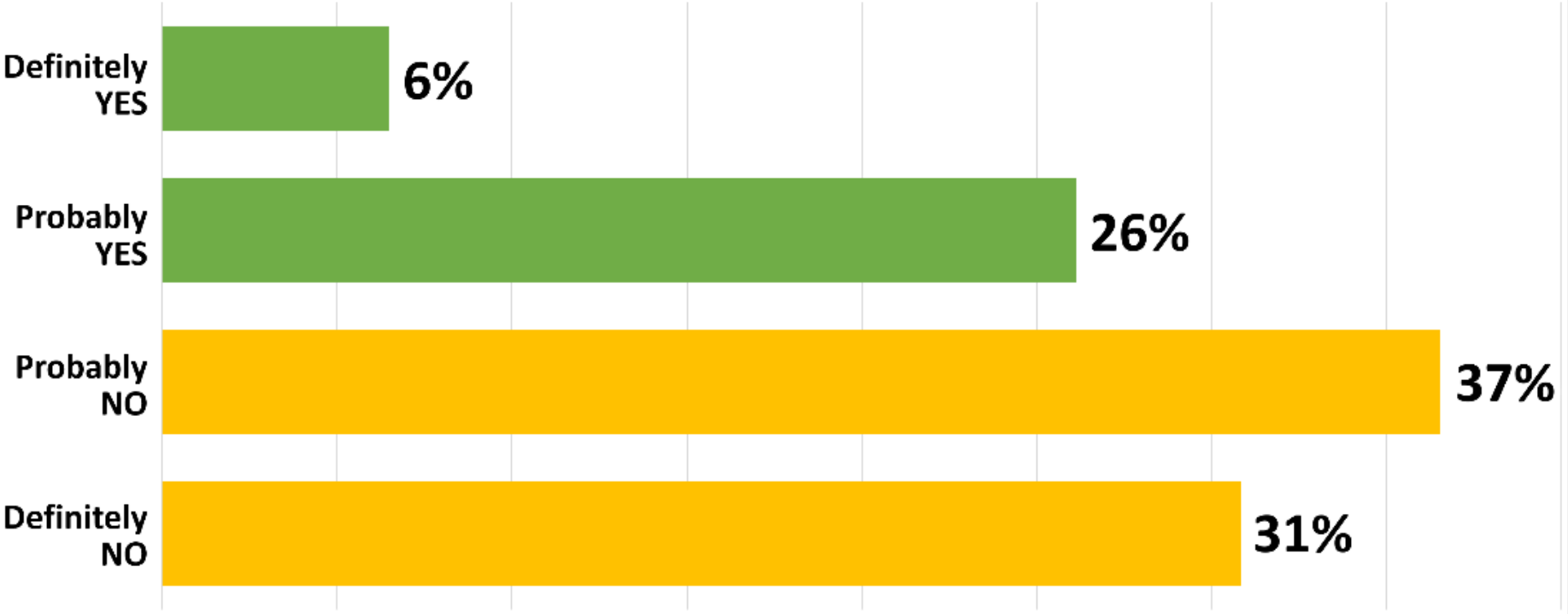
Fillichio & Hastings National Survey September 2021 - Total Respondents 1,018
The question of how respondents viewed studies funded by product manufacturers falls in a similar bucket. When asked, “Are you more trusting of expert tests/studies paid for by product manufacturers because of the pandemic?”65% of respondents said, “No” (and 21% said “Definitely No.”)
Are you more trusting of expert tests/studies paid for by product manufacturers because of the pandemic?
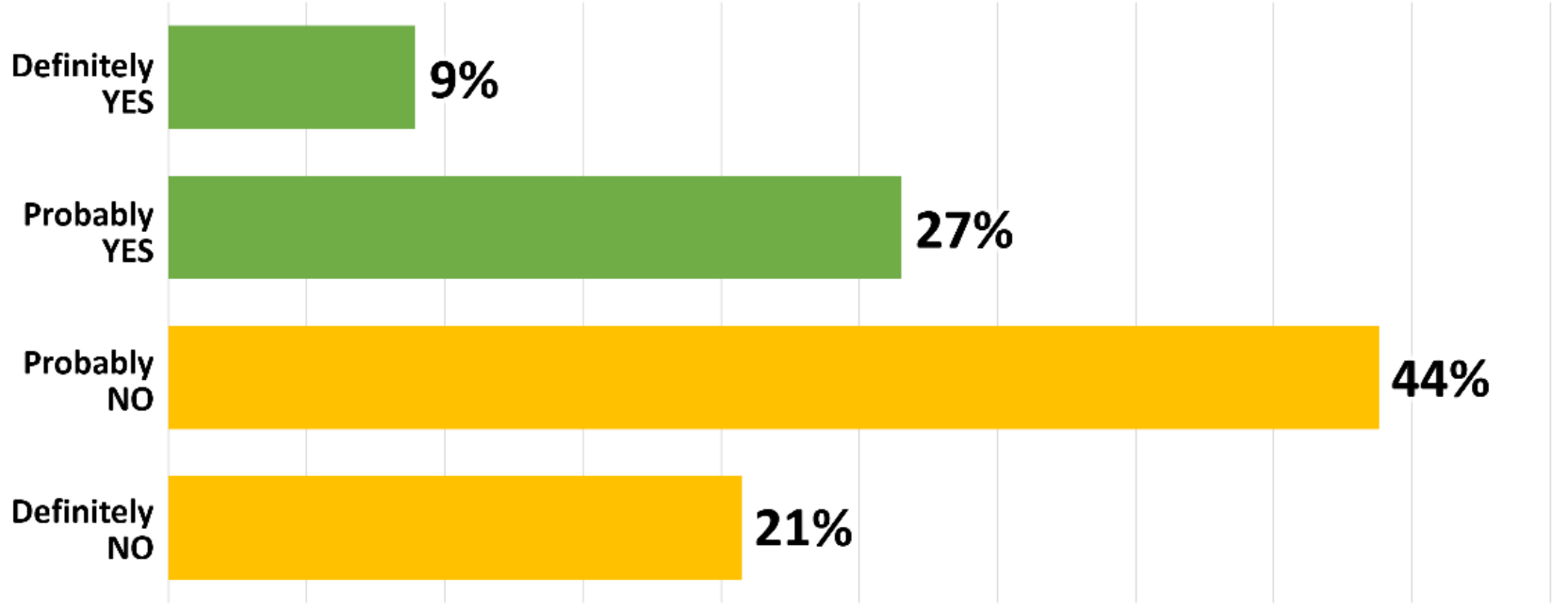
Fillichio & Hastings National Survey September 2021 - Total Respondents 1,018
Scientists, however, fared much better. We asked, “Are you more trusting of science/scientists because of the pandemic?” Importantly, 61% of respondents said, “Yes” (and 24% said “Definitely Yes.”)
Are you more trusting of science/scientists because of the pandemic?
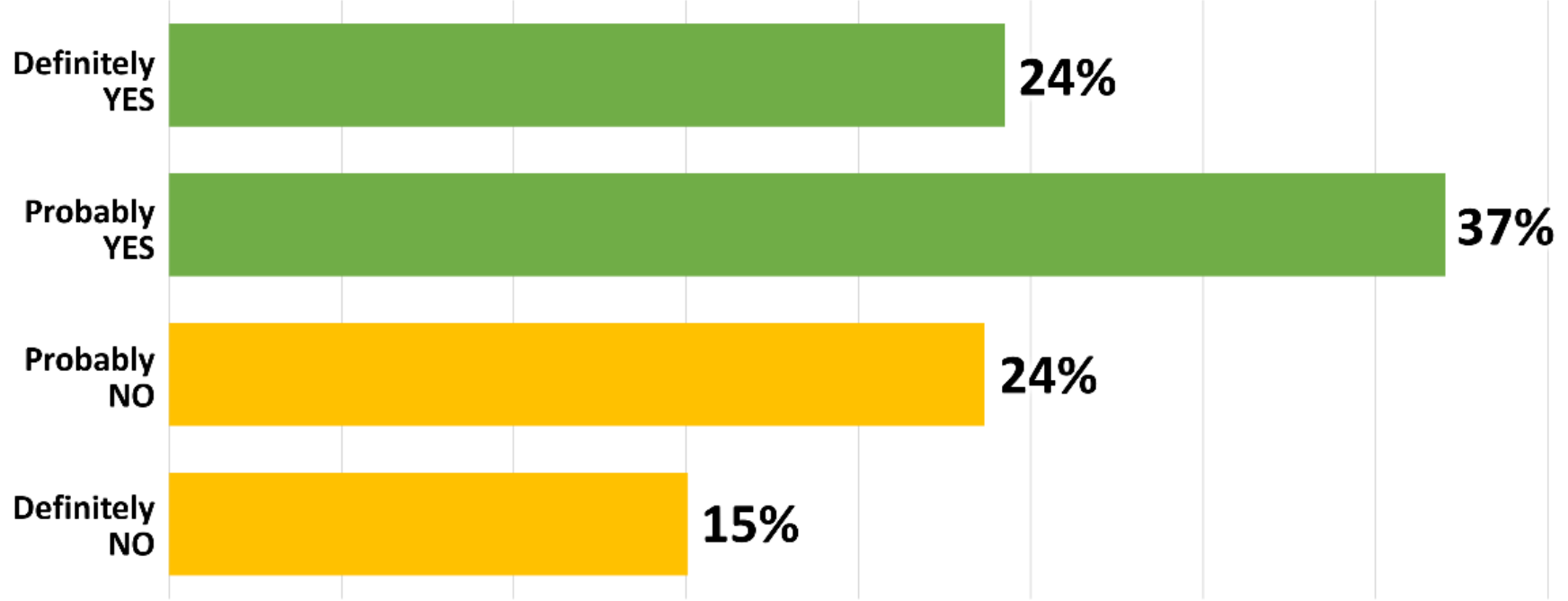
Fillichio & Hastings National Survey September 2021 - Total Respondents 1,018
Conclusions
Jurors appear to be more knowledgeable about science, concerned about breathing issues, interested in understanding the cause of disease and more willing to trust scientists since the onset of the pandemic in March 2020. Understanding juror views of science, and their natural interest in and willingness to engage on the topic, can inform counsel on how to structure a defense that appeals to the largest number of jurors in a sworn panel. The imperative for counsel with every jury panel, regardless of how well counsel might know the science, is to resist the temptation to generalize about juror
predispositions on the relevant issues. Rigorous inquiry into the topics of what is of concern to jurors in a case involving illness and injury, particularly when the topic relates to breathing issues during and after the worldwide pandemic, will help counsel frame the data and testimony in a way that may be accessible to prospective jurors regardless of their age, level of education, political party affiliation or other demographic characteristics.
1 Ms. Fillichio is a founder, trial consultant, and Chief Executive Officer of Fillichio & Hastings, Inc., El Segundo, California. Fillichio & Hastings consultants offer fully integrated services including jury and arbitration consulting, visual communications, and courtroom presentation technology. Ms. Fillichio gratefully acknowledges the contributions of Steve Son, Ph.D., and Nicole Mills, M.A.
2 See, e.g., “Jury Selection A Year After the Pandemic: Thinking Outside the Box,” Fillichio, March 2021.
3 All 1,018 participants were randomly selected from across the nation to reflect census data for several demographics including age and gender. Participants were given no indication as to the subject of the survey.
4 The survey sample represents a margin of error ≤ 3% with a 95% confidence level. Most surveys from Pew Research and others utilize sample sizes of 1,000 to sufficiently represent large populations, such as that of the United States. See, e.g., Dillman, D., Smyth, J. D., & Christian, L. (2009). Internet, Mail, and Mixed-Mode Surveys:
The Tailored Design Method (3rd Edition ed.). Hoboken, New Jersey: John Wiley & Sons, Inc. and https://www.pewresearch.org/our-methods/u-s-surveys/frequently-asked-questions/
5 Response data herein has been rounded and thus may not total 100%.
6 We asked respondents: “Have you become more concerned about breathing issues/respiratory illness because of the pandemic?” 63% responded "Yes". Similarly, we asked, “Excluding Covid-19, have you become more concerned about what you breathe in because of the pandemic?” 60% responded "Yes".

About the author
Susan G. Fillichio, Esq.
Founder, Consultant